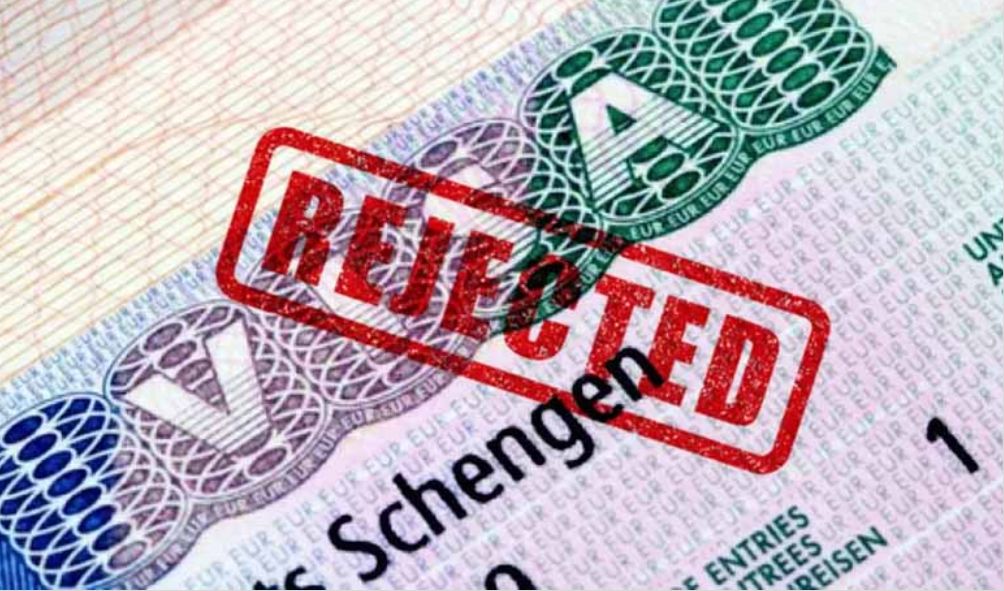
EXPLAINER: Why Most Kenyans Are Denied Schengen Visas
Kenyans have recently received significant pressure from the United States as a result of its tighter visa rules. However, obtaining a European visa appears to be even more complicated.
According to data from the European Union Commission, Kenya is one of the African countries with the highest refusal rates for European visas.
According to the research, 29.1 percent of Kenyan applicants are rejected Schengen visas, which are short-term visas that allow people to travel across 27 countries in Europe.
Kenya has a higher rejection rate than its regional neighbors, Tanzania (20.1%), Botswana (16.3%), and Zimbabwe (16.2%).
Others include Zambia (10.8%), South Africa (5.7%), Mauritius (5.6%), and Namibia (5.2%), which fare slightly better in the Schengen visa sector.
Why is it so hard for some Africans to get a European visa? 111,201 Nigerians applied for Schengen visas last year at €90 each. 46% of them were denied, so they lost over $5 million in non-refundable visa fees.
— Larry Madowo (@LarryMadowo) May 18, 2025
66,329 Kenyans applied but 29% were rejected; a loss of nearly $2m pic.twitter.com/GkTdcxvyb9
Liberia and São Tomé had the lowest rejection rates for visa applications, at 0.8% and 0.9%, respectively.
Kenya’s rejection rate of 29.1 percent is not awful by any means, but it does portray a troubling picture, especially given that the percentage stands out in East and Central Africa, particularly for a country that prides itself on being a diplomatic hub.
Several factors might contribute to a country’s deteriorating acceptance of European travel systems, with incomplete applications or insufficient supporting documentation being among the most common causes for denial.
Notably, many African visa applicants fail to meet basic conditions such as confirmation of sufficient finances and confirmed accommodation.
Strong ties to the place of birth, such as job and property ownership, are other important considerations, as failure to demonstrate this raises suspicions among European embassies that there are no plans to return after the visit.
Another element that considerably reduces a country’s acceptance in European travel systems is perceived risk.
Some countries’ residents are deemed to be possible immigration hazards as a result of visa officers’ evaluation criteria.
This demonstrates that many people from a certain country lack strong economic or social ties to their native country.
ALSO READ:
- DCP’s Malala Explains Why United Opposition Chiefs Snubbed Gachagua’s Return
- UK To Pay A Measly Ksh22K To BATUK’s Fire Victims In Laikipia
- Wetangula, CJ Koome Exchange Words Over Courts-Parliament Relationship
- VIHIGA: COP Shoots Dead A Colleague Before Disappearing
- CHAN PRIZE MONEY: Breakdown Of All Participants As Kenya Bags Ksh58 Million
Third, European visas are often quite lucrative, resulting in high demand. With this in mind, the supply of available approvals nearly never meets demand.
This mismatch results in tougher vetting processes, putting countries thought to pose larger immigration risks at a disadvantage.
In an effort to improve Kenya’s image in Europe, President William Ruto recently challenged the Kenya National Chamber of Commerce and Industry (KNCCI) to collaborate with the European Union Chamber (EuroCham).
Ruto asked them to form a Business Council, which, if successful, would benefit thousands of Kenyans.
EXPLAINER: Why Most Kenyans Are Denied Schengen Visas






